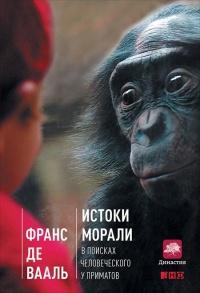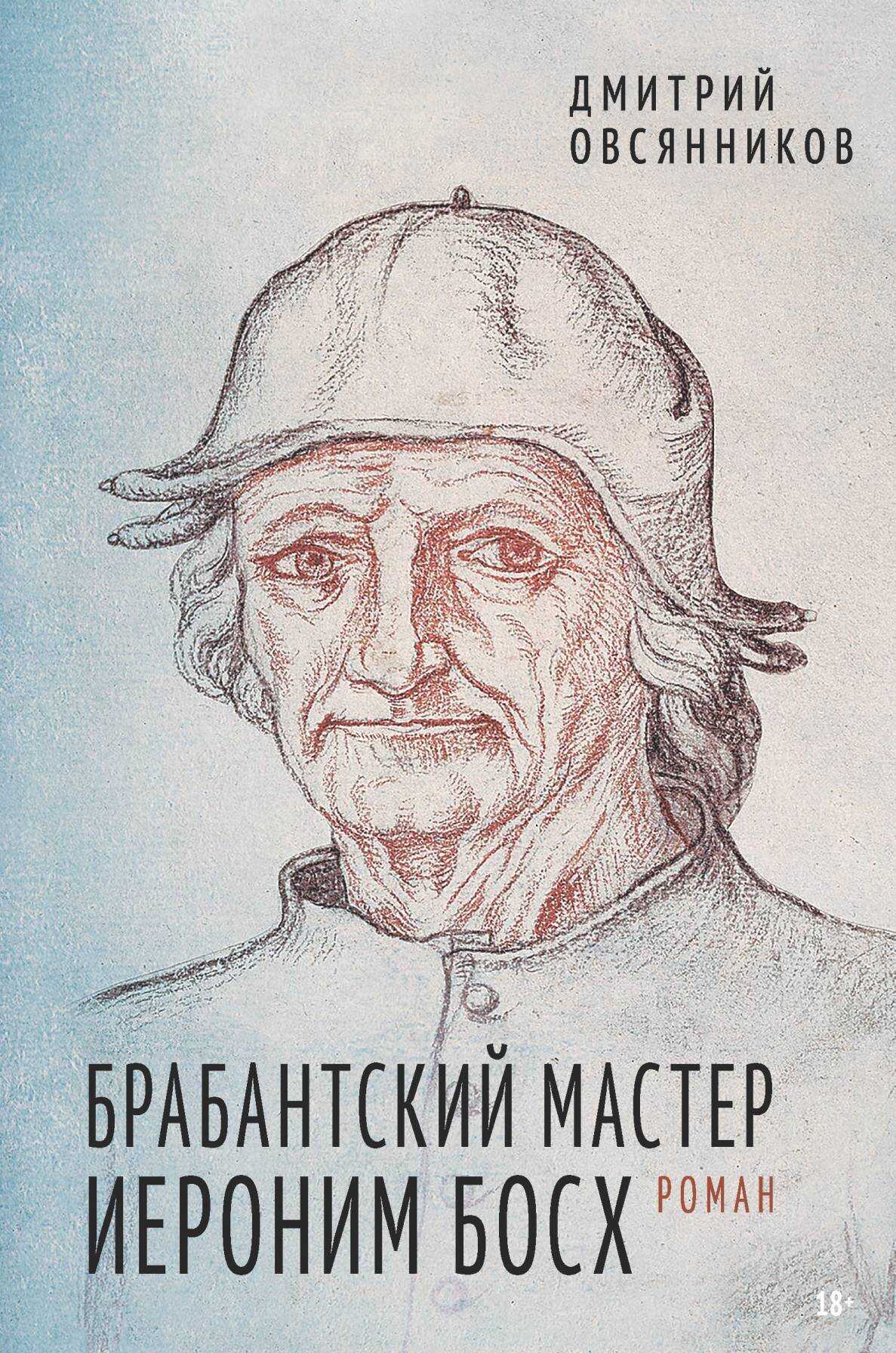Читать книгу - "Истоки морали. В поисках человеческого у приматов - Франс В.М. де Валь"
Аннотация к книге "Истоки морали. В поисках человеческого у приматов - Франс В.М. де Валь", которую можно читать онлайн бесплатно без регистрации
Goodenough, U. 1999. The holes in Goulds semipermeable membrane between science and religion. American Scientist, May — June.
—. 2000. Vie Sacred Depths of Nature. New York: Oxford University Press.
Gould, S. J. 1997. Non-overlapping Magisteria. Natural History 106(2):16–22.
Grandin, Т., and C. Johnson. 2004. Animals in Translation: Using the Mysteries of Autism to Decode Animal Behavior. New York: Scribner.
Gray, J. 2011. The Immortalization Commission: Science and the Strange Qitest to Cheat Death. London: Allen Lane.
Haidt, J. 2001. The emotional dog and its rational tail: A social intuitionist approach to moral judgment. Psychological Review 108:814–34.
Hamlin, J. K., K. Wynn, and P. Bloom. 2007. Social evaluation by preverbal infants. Nature 450:557–59.
Hare, B., and S. Kwetuenda. 2010. Bonobos voluntarily share their own food with others. Current Biology 20:R230–231.
Hare, B., et al. 2007. Tolerance allows bonobos to outperform chimpanzees on a cooperative task. Current Biology 17:1–5.
Harman, O. 2009. The Price of Altruism. New York: Norton.
Harris, S. 2006. Letter to a Christian Nation. New York: Knopf.
—. 2010. Hie Moral Landscape: How Science Can Determine Human Values. New York: Free Press.
Hein, G., G. Silani, K. Preuschoff, C. D. Batson, and T. Singer. 2010. Neural responses to ingroup and outgroup members’ suffering predict individual differences in costly helping. Neuron 68:149–60.
Henrich, J., R. Boyd, S. Bowles, C. Camerer, H. Gintis, R. McElreath, and E. Fehr. 2001. In search of Homo economicus: Experiments in 15 small-scale societies. American Economic Review 91:73–79.
Herculano-Houzel, S. 2009. The human brain in numbers: A linearly scaled-up primate brain. Frontiers in Human Neuroscience 3:1–11.
Hitchens, C. 2007. Cod Is Not Great: How Religion Poisons Everything. New York: Hachette.
Hobaiter, C, and R. W. Byrne. 2010. Able-bodied wild chimpanzees imitate a motor procedure used by a disabled individual to overcome handicap. PLoS ONE 5:e11959.
Hobbes, T. 2004 [orig. 1651]. De Cive. Whiteftsh, MT: Kessinger.
Hohmann, G., and B. Fruth. 2011. Is blood thicker than water? In Among African Apes, ed. М. M. Robbins and C. Boesch, pp. 61–76. Berkeley: University of California Press.
Horner, V., and A. Whiten. 2005. Causal knowledge and imitation/emulation switching in chimpanzees (Pan troglodytes) and children (Homo sapiens). Animal Cognition 8:164–81.
Horner, V, D. J. Carter, M. Suchak, and F. B. M. de Waal. 2011a. Spontaneous prosocial choice by chimpanzees. Proceedings of the Academy of Sciences USA 108:13847–51.
—. 2011b. Reply to Skoyles: Misplaced assumptions of perfect human prosociality. Proceedings of the Academy of Sciences USA 108:E836.
Horner, V., D. Proctor, K. E. Bonnie, A. Whiten, and F. В. M. de Waal. 2010. Prestige affects cultural learning in chimpanzees. PLoS ONE 5:e10625.
Hrdy, S. B. 2009. Mothers and Others: The Evolutionary Origins of Mutual Understanding. Cambridge, MA: Belknap Press of Harvard University Press.
Hume, D. 2008 [orig. 1739]. A Treatise of Human Nature. Sioux Falls, SD: Nu Vision.
Huxley, L., ed. 1901. Life and Letters of Thomas Henry Huxley. Vol. 1. New York: Appleton.
—. 1916. Life and Letters of Thomas Henry Huxley. Vol. 2. New York: Appleton.
Huxley, Т. H. 1989 [orig. 1894]. Evolution and Ethics. Princeton, NJ: Princeton University Press.
Jammer, M. 1999. Einstein and Religion. Princeton, NJ: Princeton University Press.
Jensen, K., B. Hare, J. Call, and M. Tomasello. 2006. Whats in it for me? Self-regard precludes altruism and spite in chimpanzees. Proceedings of the Royal Society В 273:1013–21.
Johnson, M. 1993. Moral Imagination: Implications of Cognitive Science for Ethics. Chicago: University of Chicago Press.
Joyce, R. 2005. The Evolution of Morality. Cambridge, MA: MIT Press.
Kano, T. 1992. The Last Ape: Pygmy Chimpanzee Behavior and Ecology. Stanford, CA: Stanford University’ Press.
King, B. J. 2007. Evolving God: A Provocative View of the Origin of Religion. New York: Doubleday.
Kitcher, P. 2006. Ethics and evolution: How to get here from there. In Primates and Philosophers: How Morality Evolved, ed. S. Macedo and J. Ober, pp. 120–139. Princeton, NJ: Princeton University Press.
—. 2009. Beyond Disbelief. In 50 Voices of Disbelief. Why We Are Atheists, ed. R. Blackford and U. Schuklenk, pp. 87–96. Hoboken, NJ: Wiley-Blackwell.
—. 2011. The Ethical Project. Cambridge, MA: Harvard University Press.
Konner, М. 2002. Some obstacles to altruism. In Altruistic Love: Science, Philosophy, and Religion in Dialogue, ed. S. G. Post et al., pp. 192–211. Oxford: Oxford University Press.
Kummer, H. 1995. Tfte Quest of the Sacred Baboon. Princeton, NJ: Princeton University Press.
Lamarck. J. B. 1914 [orig. 1809]. Zoological Philosophy. Translated by Hugh Elliot.
London: Macmillan. Langergraber, K. E., J. C. Mitani, and L. Vigilant. 2007. The limited impact of kinship on cooperation in wild chimpanzees. Proceedings of the Academy of Sciences USA 104:7786–90.
Langford, D. J., et al. 2006. Social modulation of pain as evidence for empathy in mice. Science 312:1967–70.
Lee, R. B. 1969. Eating Christmas in the Kalahari. Natural History 78(12):14–22,60–63.
Levin, J. S. 1994. Religion and health: Is there an association, is it valid, and is it causal? Social Science and Medicine 38:1475–82.
Linfert, C. 2003 [orig. 1972]. Hieronymus Bosch. New York: H. N. Abrams.
Lorenz, K. 1960. So kam der Mensch auf den Hund. Vienna: Borotha-Schoeler.
Macedo, S., and J. Ober, eds. 2006. Primates and Philosophers: How Morality Evolved. Princeton, NJ: Princeton University Press.
Malenky, R. K., and R. W. Wrangham. 1994. A quantitative comparison of terrestrial herbaceous food consumption by Panpaniscus in the Lomako Forest, Zaire, and Pan troglodytes in the Kibale Forest, Uganda. American Journal of Primatology 32:1–12.
Malhotra, D. 2010. (When) are religious people nicer? Religious salience and the «Sunday Effect» on pro-social behavior. Judgment and Decision Making 5:138–43.
Marcus Aurelius. 2002 [orig. 170–180 CE]. The Emperors Handbook: A New Translation of Die Meditations. New York: Scribner.
Matsuzawa, T. 2011. What is uniquely human? A view from comparative cognitive development in humans and chimpanzees. In Hie Primate Mind, ed. R В. M. de Waal and P. F. Ferrari, pp. 288–305. Cambridge, MA: Harvard University Press.
Прочитали книгу? Предлагаем вам поделится своим впечатлением! Ваш отзыв будет полезен читателям, которые еще только собираются познакомиться с произведением.
Оставить комментарий
-
 Вера Попова27 октябрь 01:40
Любовь у всех своя-разная,но всегда это слово ассоциируется с радостью,нежностью и счастьем!!! Всем добра!Автору СПАСИБО за добрую историю!
Любовь приходит в сентябре - Ника Крылатая
Вера Попова27 октябрь 01:40
Любовь у всех своя-разная,но всегда это слово ассоциируется с радостью,нежностью и счастьем!!! Всем добра!Автору СПАСИБО за добрую историю!
Любовь приходит в сентябре - Ника Крылатая
-
 Вера Попова10 октябрь 15:04
Захватывает,понравилось, позитивно, рекомендую!Спасибо автору за хорошую историю!
Подарочек - Салма Кальк
Вера Попова10 октябрь 15:04
Захватывает,понравилось, позитивно, рекомендую!Спасибо автору за хорошую историю!
Подарочек - Салма Кальк
-
 Лиза04 октябрь 09:48
Роман просто супер давайте продолжение пожалуйста прочитаю обязательно Плакала я только когда Полина искала собаку Димы барса ♥️ Пожалуйста умаляю давайте еще !))
По осколкам твоего сердца - Анна Джейн
Лиза04 октябрь 09:48
Роман просто супер давайте продолжение пожалуйста прочитаю обязательно Плакала я только когда Полина искала собаку Димы барса ♥️ Пожалуйста умаляю давайте еще !))
По осколкам твоего сердца - Анна Джейн
-
 yokoo18 сентябрь 09:09
это прекрасный дарк роман!^^ очень нравится
#НенавистьЛюбовь. Книга вторая - Анна Джейн
yokoo18 сентябрь 09:09
это прекрасный дарк роман!^^ очень нравится
#НенавистьЛюбовь. Книга вторая - Анна Джейн





